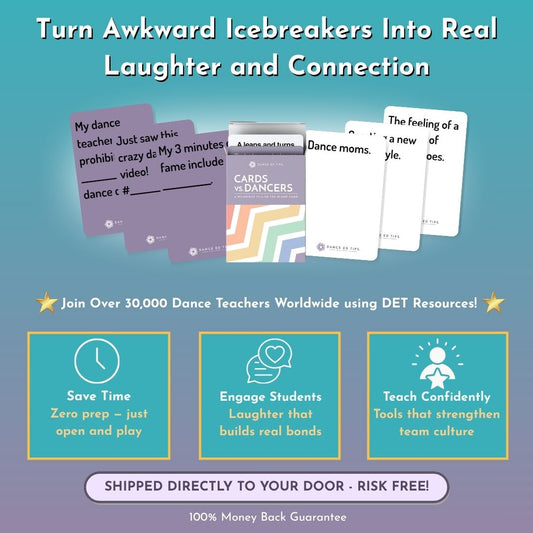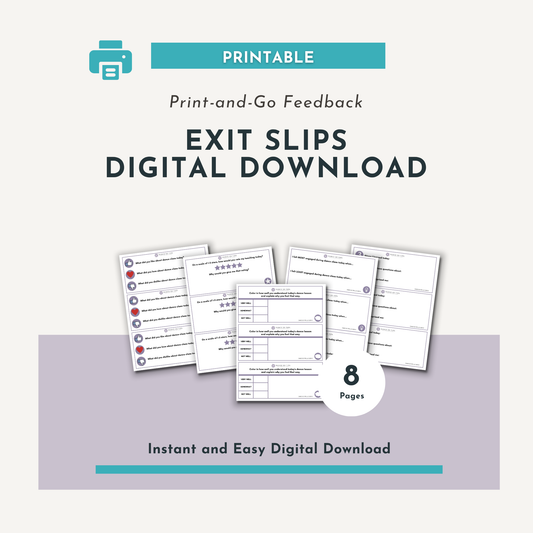By: Melissa Croushorn
Tired of getting grabbed by a parent while you’re on the way to the restroom or feeling like you’re having to share the same information over and over again?
Parents can be the MVP’s of your studio, if you’re dedicated to making space for them.
I began learning this as a college student, while working for summer dance programs and directing a small ensemble. In a summer program dynamic, the window to form a relationship is short and intense in a high stakes environment - parents have invested tremendously in their dancer’s growth and development, dancers’ hopes and dreams are unveiling in front of them - and you’re positioned as the gateway to all those things. In a studio or classroom setting, there is a longer arc to build a relationship, get to know each other, connect inside and outside the studio.
- Designate space to connect with parents on a regular basis, with plenty of notice. Anxiety and frustration begins to build when uncertainty looms. When parents start approaching you about repeated topics, you’ll be able to say, “This is of priority for others as well, we’ll be sure to go over this at our monthly meeting on Monday evening.” Make sure you do that!
- Be clear about how, when, and where you’re able to communicate with parents. Prepared responses such as, “Out of respect for you and your dancer, I make every effort to discuss confidential matters in appropriate settings (i.e. the studio lobby is not that place), which will help you respond to everyone consistently.
- Keep office hours for parents. You won’t be able to accommodate everyone every week, but if parents know that you (or a member of your team) are exclusively available for them on Fridays between 1-3pm in 30 minute slots, they can plan accordingly. That way when a parent needs something from you, you can say, “Please schedule a slot on the next available Friday, so I can be fully present with you.”
- Parents need to know that you value their children and their efforts to support their child’s training. What that looks like will shift with your student population, environment, and level of training. At summer dance programs, parents need to know they can get in touch with their child and Residence Life staff 24/7, especially when they are hours away from their child. When I directed my small ensemble, several students had limited financial resources, so I made sure to work with parents to help them plan ahead, get creative, and be able to enjoy watching their child dance.
- You and your staff need to be on the same page about all studio policies - including parent dynamics. If members of your team are giving out conflicting information, it’s a sure-fire path to chaos. Taking time to train your team is an investment that is often overlooked. When your team knows the plan and how to stick to it, you’ll save time, reduce stress, and get to focus on actually teaching dance.
Empowered parents will empower your dancers, you, and your teaching staff. With my ensemble, I was eighteen years old and way in over my head trying to run a production. Investing in parent relationships gave them confidence to invest in me, which helped things take off. One was a geologist by training and created a beautiful set for me, complete with a cave. Another needed some financial assistance but had the ad-selling, sponsor-getting mojo, and because of her efforts we were able to cover her dancer’s costume costs, and actually make money on the performance.
During a summer program, I had to enforce a policy that really rankled a parent. Because of the thorough training I received, I was able to communicate effectively and respectfully even when tensions began to rise. The next day, I received a follow-up call from that parent, apologizing and thanking me for sticking to policies that were designed for the safety and well-being of all our students. Those calls don’t happen a lot and I knew it was because I had been prepared for just such an encounter.
Parents are part of your team, not understudies. You both need each other. Your dancers will thrive from your being in sync with their parents which will make your studio or company flourish.

Melissa works with artists, families of artists, and arts leaders to architect their place in the dance industry - saving time, money, and resources from being wasted on inadequate training, unnecessary extracurriculars, and unrealistic expectations - so they can focus on achieving dreams.
A former high performance athlete and dancer, Melissa’s decade of experience in dance and art education across institutions positions her with a uniquely broad perspective on building careers in the performing arts. She previously worked at Boston Ballet, Central Pennsylvania Youth Ballet, Miami City Ballet, San Francisco Ballet in Residence Life and The Joyce Theater in dance education. In Higher Education, she held a hybrid position at Penn State focused on student engagement in the arts.
She is a somatic movement practitioner with an emphasis on trauma-sensitive methods. She has written for Brooklyn Rail, Broadway World, and various arts publications. Melissa holds a B.A. in Communication & Theater Arts from Virginia Tech and a M.A. in American Dance Studies from Florida State University. You can learn more about her work at www.emceemovement.com.





